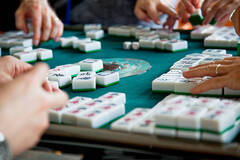Rabbi Young's High Holy Day 5786 Message
 In his essay on repentance entitled Orot Hateshuva, Rav Avraham Yitzchak Kook (the first Ashkenazi Chief Rabbi of British Mandatory Palestine) wrote of two types of repentance (teshuvah):
In his essay on repentance entitled Orot Hateshuva, Rav Avraham Yitzchak Kook (the first Ashkenazi Chief Rabbi of British Mandatory Palestine) wrote of two types of repentance (teshuvah):
לגבי משך זמנה, התשובה מתחלקת לשני חלקים
תשובה פתאומית, ותשובה הדרגית
Regarding its length of time, teshuvah may be divided into two types:
sudden teshuvah and gradual teshuvah.
Sudden teshuvah happens when an event causes us to have an “aha moment,” which ignites in us a passion to drastically change our behavior based on this sudden revelation. Gradual teshuvah is when we understand a problem within us and make careful arrangements for slow changes, perhaps step-by-step changes, that slowly allow us to work toward a higher level of what Rav Kook calls ןוקתו ךוכז: z’chuf v’tikkun “cleansing and betterment.”
Adding to this, it could be understood that sudden teshuvah might be painful, like when a doctor tells us to modify our lifestyle because of an acute and serious health event.
Gradual teshuvah might be less painful (or the pain may not be noticed because it is spread out over time), like when we make a decision to stop a bad habit by decreasing the negative thing slowly.
In our unifying community we are experiencing both sudden and gradual changes this year, some of which we choose and some of which are chosen for us. We could be thinking about how long it will take to create our sacred space, and how beautiful it will be when the process is complete. We might be thinking about all the people engaged in building the future of the congregation while simultaneously working hard to provide this community with an engaging programming year.
Both sudden and gradual changes can lead to wonderful outcomes. Our High Holy Days give us the opportunity to soul-search, discover the aspects of our behavior that could use an adjustment—immediate or eventual—and begin the work towards cleansing and betterment. Still us, but a higher, more developed version.
We look forward to a year of positive change for ourselves, our community, and our world.
L’Shanah Tovah,
Rabbi David N. Young


